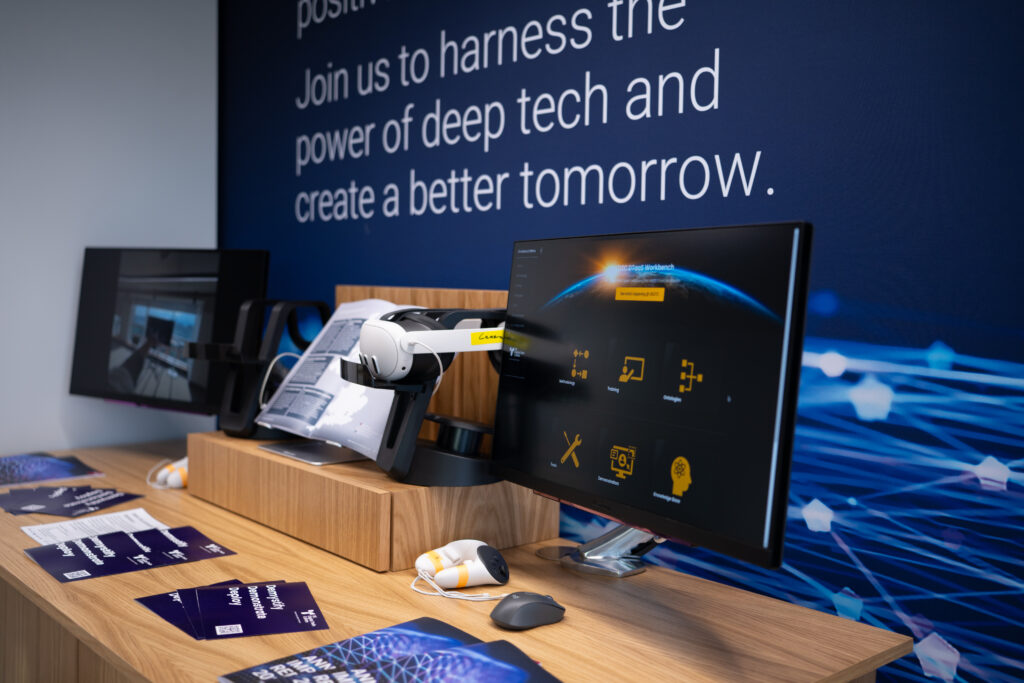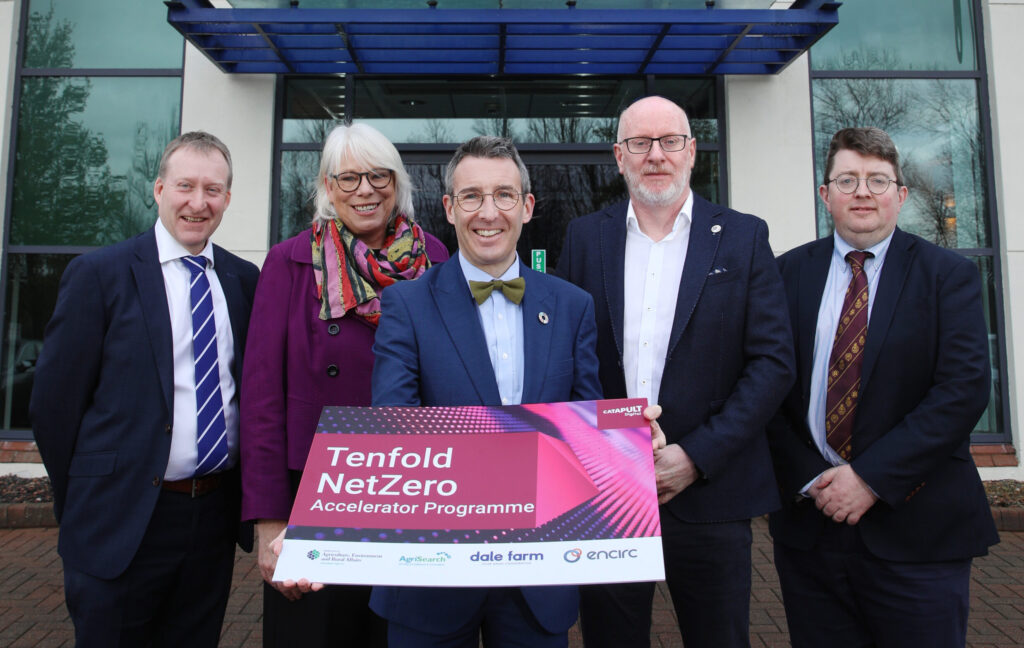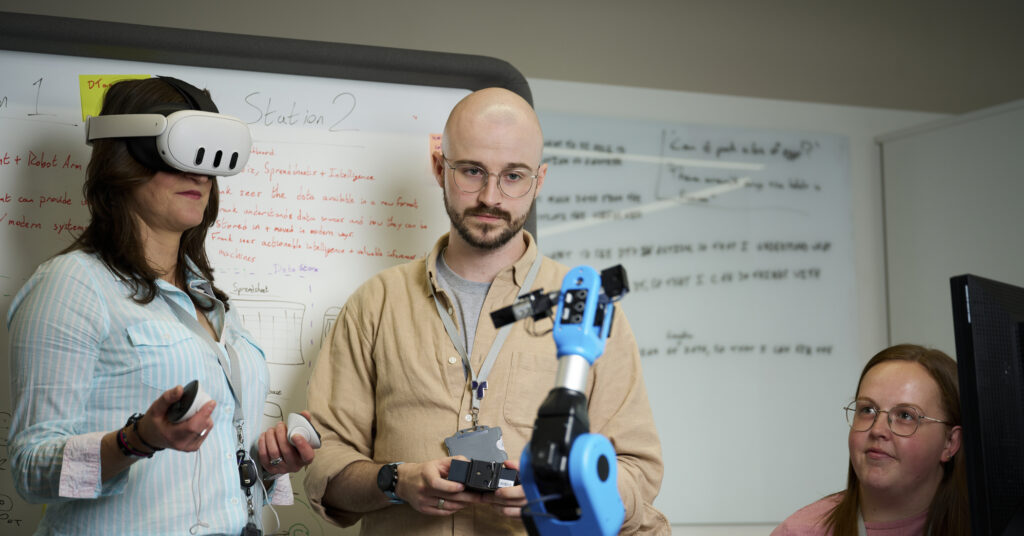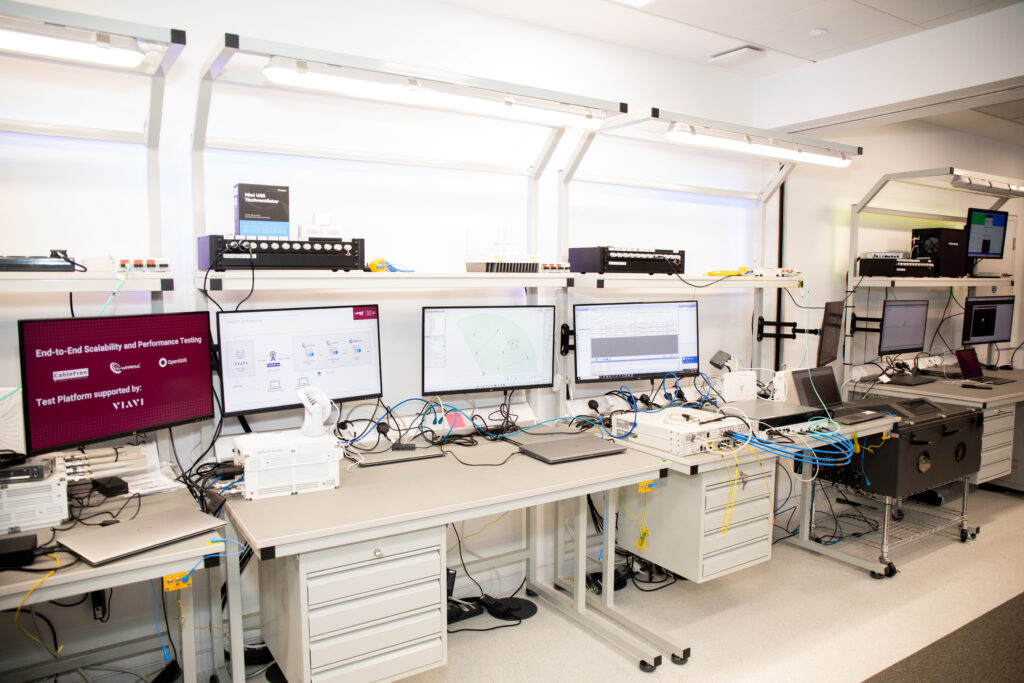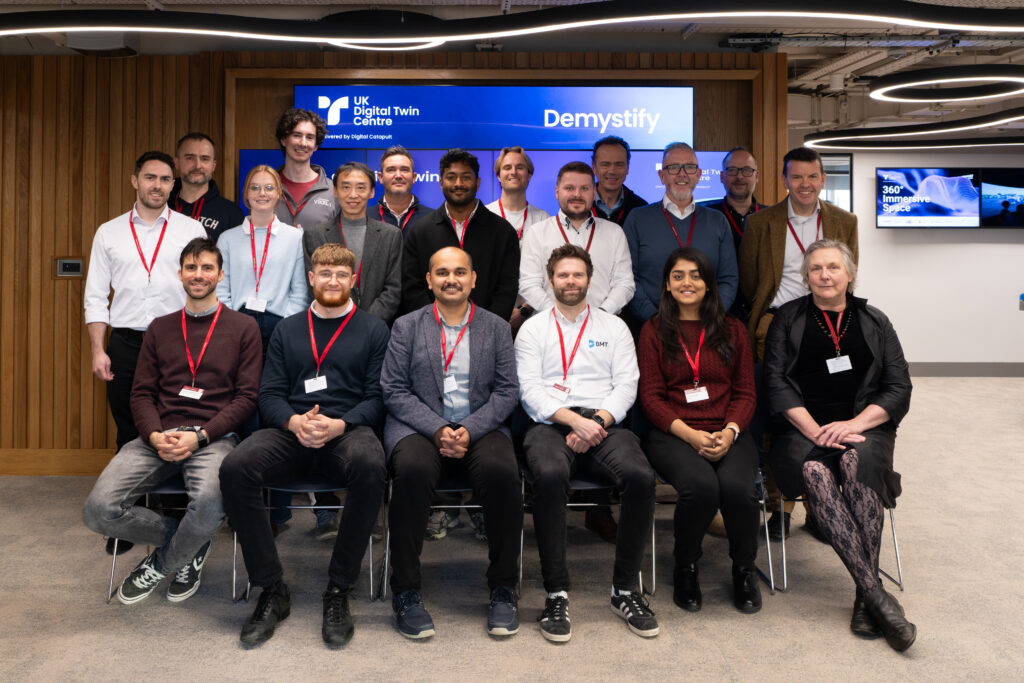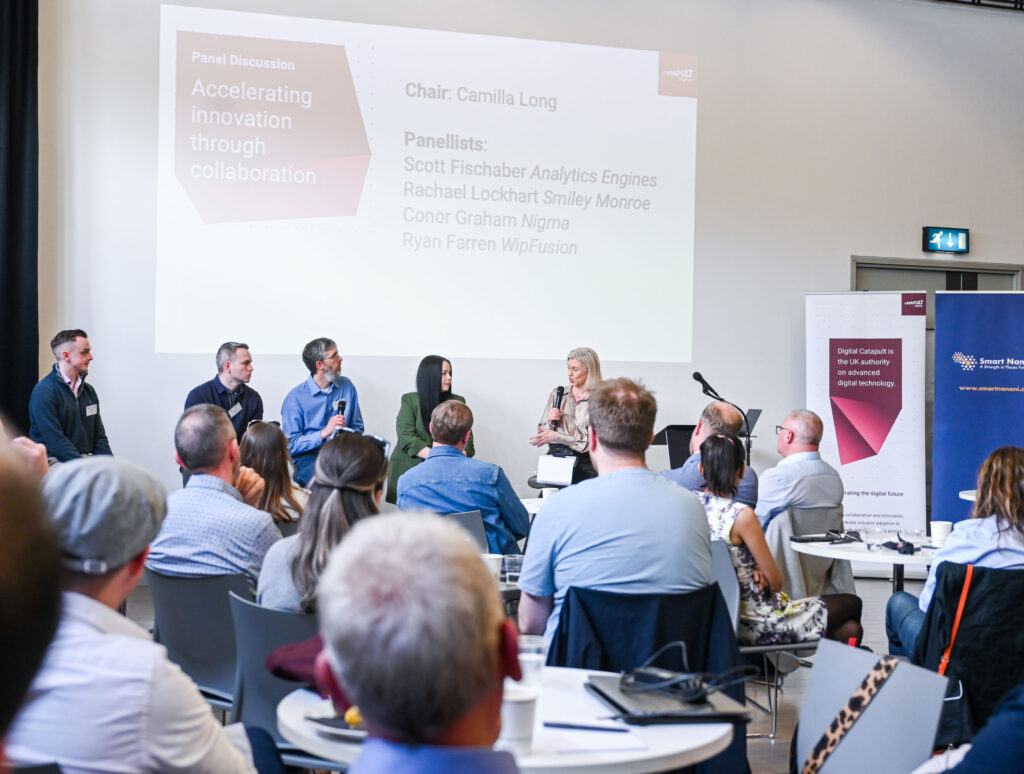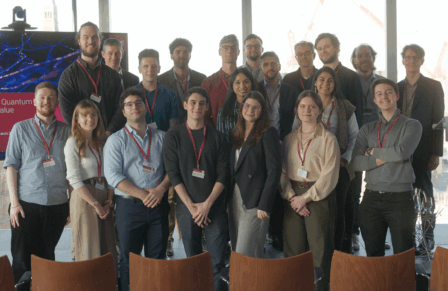The promise of quantum technologies is fast becoming a conversation across boardrooms, R&D labs, and innovation clusters. As more sectors explore quantum’s potential, several key themes are beginning to emerge. At Digital Catapult, we partner with industry leaders across numerous sectors to accelerate the practical application of deep tech innovation and to equip them with the understanding and technological expertise to integrate quantum solutions into their operations, unlocking new opportunities and efficiency gains. Based on our experience engaging with industry leaders to drive quantum preparedness, here are four critical learnings shaping how quantum innovation is making the leap from theory to real-world use.
Four things we’ve learned from applying quantum to industry
Posted 24 Jul 2025
From engaging with leaders of businesses across the country including the Port of Dover, Rolls-Royce, BAE Systems, Vodafone and more, it is clear that many are keen to explore how quantum could support their future strategies. Our engagements have proven however that quantum remains a complex and intangible concept for some. Many industry leaders recognise that they need to get ahead of the curve and prepare for quantum to become more mainstream, to remain competitive, but they struggle to understand how it can be leveraged and practically applied to their own operations. We know that the appetite to learn about and adopt quantum innovation is there, but what is often missing is a clear roadmap to integration.
As such, businesses are asking not just what quantum can do, but how they can meaningfully adopt it. What infrastructure is needed? What skills should they be developing internally? Which problems are worth tackling first? This signals a real opportunity and suggests that those who can bridge the gap between innovative research and practical application will lead the way. This is why quantum innovation programmes like those that we deliver at Digital Catapult are essential in enabling businesses to take the first step in practically applying quantum to their industry.

2. Partnerships and programmes are the cornerstone of progress

Another learning from accelerating the practical application of quantum innovation to industry is that no single organisation holds all the keys. Accelerating quantum innovation depends on collaboration across academia, startups, corporates, and government. Therefore, interventions that convene capabilities are proving to be the most effective means of bringing talent, knowledge, and capabilities together in a way that accelerates both understanding and application.
Innovation programmes, testbeds, and joint ventures are not just helpful, they are essential. They create environments where quantum ideas can be trialled, refined, and scaled in partnership with industry, ensuring alignment with real-world needs. This is particularly the case where industry leaders can trial real-world solutions using a quantum computer, exactly as our partners and programme cohort companies have achieved using the ORCA-PT-1 quantum computer. We are seeing success where open collaboration is the default, not the exception, and this will be critical to the long-term success of quantum in the UK’s industrial landscape.
3. Decarbonisation and digital networks are breeding grounds for use-cases
At Digital Catapult, we constantly assess where and how deep tech innovation could have the greatest impact. We work across the key sectors of the UK economy, and our quantum innovation programme has supported industry leaders across a spectrum of high-growth sectors including defence, manufacturing, infrastructure, and nuclear energy. Our interventions have allowed us to identify two sectors that consistently demonstrate immense value and promise following the practical application of quantum innovation. These are decarbonisation and advanced connectivity. Both align with our primary focus areas of driving industrial decarbonisation and accelerating the development and deployment of data driven and open future networks across the country and have proven multiple applications of quantum innovation to unlock opportunity.
During our recent quantum innovation programme, we partnered with Vodafone, enabling the telecoms pioneer to solve the Steiner-Tree Problem. This would typically take an hour on a classical computer but could be solved in minutes using a quantum system. On the decarbonisation front, we worked with Simulex, a startup looking to accelerate the energy transition through advanced chemical and reservoir engineering solutions. Simulex modelled a complex network of renewable energy sources, including variable demand and energy storage options. The quantum computer model enabled greater speed and precision, enabling Simulex to maximise renewable energy use while reducing energy losses, costs, and environmental impact. These examples are testament to how quantum technologies could help accelerate our journey to net-zero, while also reshaping the very infrastructure of future connectivity.
4. The UK holds a strategic advantage, and a global opportunity
With a world-class academic base, a growing quantum community, and strategic public investment, the UK is uniquely placed to lead on quantum innovation. The building blocks are already here, which include national centres of excellence, a thriving startup ecosystem, and a policy environment geared towards commercialisation, with millions more funding announced as part of the Industrial Strategy. This puts the UK ahead of other markets and has established a solid framework for scaling quantum innovation, and unlocking pioneering new opportunities, that will keep the UK competitive on a global scale.
What is needed now is a clear focus on demonstrating value, showing not just what is possible, but what is already being achieved. If we can highlight successful industrial applications and foster international collaborations, the UK can be a beacon for global quantum innovation, shaping standards, creating markets, and securing long-term economic impact. Quantum technology has moved from lab-based promise to a tool with clear industry relevance. To truly unleash its potential however, we must demystify its value, nurture collaboration, explore high-impact sectors like energy and networks, and boldly position the UK as a leader on the world stage.
If you would like to learn more about our quantum work, read here.


















